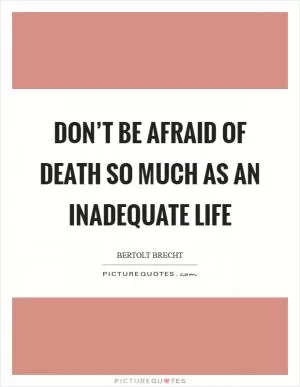First comes a full stomach, then comes ethics

First comes a full stomach, then comes ethics
Bertolt Brecht, the renowned German playwright and poet, was known for his revolutionary approach to theater and his commitment to social and political change. One of the key themes that runs through much of Brecht's work is the idea that societal change must begin with addressing basic human needs, such as hunger and poverty, before moving on to more abstract concepts like ethics and morality. This concept is encapsulated in the phrase, "First comes a full stomach, then comes ethics."Brecht believed that in order for individuals to engage with ethical and moral questions, they must first have their basic needs met. This idea is reflected in many of his plays, which often focus on the struggles of working-class individuals and the injustices they face in society. In works such as "The Threepenny Opera" and "Mother Courage and Her Children," Brecht highlights the harsh realities of poverty and the ways in which it can corrupt individuals and erode their sense of morality.
For Brecht, the theater was a powerful tool for raising awareness about social issues and inspiring audiences to take action. By portraying the struggles of everyday people on stage, he sought to create empathy and understanding among his viewers, encouraging them to think critically about the world around them and to consider the ethical implications of their actions.












 Friendship Quotes
Friendship Quotes Love Quotes
Love Quotes Life Quotes
Life Quotes Funny Quotes
Funny Quotes Motivational Quotes
Motivational Quotes Inspirational Quotes
Inspirational Quotes